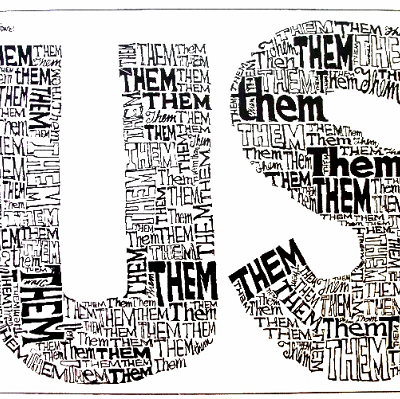I created Living ROI as a passion, to share my experiences and support others who want to live more authentic, joyful and fulfilling lives.
Dear Friends,
If you’re a woman married to a man, odds are strong that your name is NOT at the top of the contract, or the tax returns, or the utility bills.
Regardless of income or who manages the finances (not that it should matter), most cultures in the world default to historic gender customs. It’s not a grand conspiracy. The vast majority of you reading this, if not all of you, believe that men and women are equal. But in practice, gender bias is real.
Frankly, these instances of bias have been a slight annoyance to me for many years, but I’ve mostly overlooked them. My husband doesn’t care whose name is at the top of a contract or document. He hadn’t thought twice about it until I brought it up a couple of weeks ago.
This topic came into sharper focus for me during a recent real estate transaction. I’ve always wanted a cabin in the mountains, and I found one recently in the Sierra Nevada of California. I personally managed the process—identified potential places, engaged the realtor, toured the cabins and found the one I wanted to buy.
The realtor put my husband’s name on the top of the offer contract, despite the fact that I had been the primary contact and she had only met my husband briefly. The title company followed suit, and every one of the dozen or so documents involved in the transaction has my husband’s name at the top. Why? Habit? Social norms? When I asked the realtor later, she wasn’t sure why she did it.
The seller of the home is a married woman and yet her husband’s name is at the top of all the contracts and documents. It is primarily her home to sell, but on paper the transaction is between our husbands. That scenario would likely never happen in reverse.
When I called the insurance company yesterday to get the house covered before escrow closes in a couple weeks, the agent asked me my husband’s name. I gave it to her, and I specifically asked her to put me at the top on the contract. She was a little surprised but said, “Sure.” Would my husband ever have needed to ask that? Of course not. It would default to him.
Just last week we got our personal tax returns to sign from the tax firm who not only does our personal taxes, but also the taxes for my business. Guess whose name is at the top of our personal tax returns? In fact, in 26 years of marriage, my name has never been at the top of the tax return.
Once the primary “taxpayer” and that person’s social security number is identified in the tax system it is not recommended to switch it:
“If you filed a joint return for 2017 and you are filing a joint return for 2018 with the same spouse, be sure to enter your names and SSNs in the same order as on your 2017 return.”
Changing the established name order isn’t the end of the world, but it could result in processing delays for your taxes. Right now for a joint tax return in the United States there is one taxpayer and one spouse, an antiquated system.
Why does it matter whose name is at the top? When men are seen as the arbiters of the family business, the owners of contracts and dealings, it puts women into a subservient position. If she needs to contact the credit card company, and he is the primary card holder, she can’t make a change without him being involved. It’s inconvenient, but it’s also disempowering—regardless of anyone’s intention.
One solution to this issue would be to have two co-equal signatures on documents and contracts when there are two people involved, regardless of gender. This is an example of the law and current practices lagging behind social change.
There are hundreds of ways, both small and big, that sexism shows up in a woman’s life. It is often so subtle, it’s easy to deny if one brings it up. Most people do not intend to discriminate based on gender. If asked, they would never describe themselves as biased; however, many of us, women and men alike, inadvertently keep the outdated patriarchal system alive and well.
In my research I came across The Everyday Sexism Project which catalogs instances of sexism experienced on a day-to-day basis. The website states, “[These incidents] might be serious or minor, outrageously offensive or so niggling and normalized that you don’t even feel able to protest. By sharing your story you’re showing the world that sexism does exist, it is faced by women every day and it is a valid problem to discuss.”
I’m on a plane tonight, flying across the country, and I had the delightful and apropos experience of watching the movie, On the Basis of Sex, about the life of Ruth Bader Ginsburg. It was a reminder of how far we have come, and yet, as Justice Ginsburg says, “…we have a way to go.”
For my part, I plan to pay attention to these subtle forms of gender bias, and when possible, bring them to light. How can we also begin to address the systemic inequalities built into our laws and practices?







